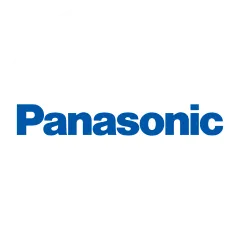Agile IT on AWS for Panasonic - "managed by Claranet"
Summary:
- Challenge: Moving from the previous private cloud environment to the public cloud to become more agile in software development for the Panasonic Group's internal customers
- Solution: Migration and rebuilding of app environments on AWS
- Result: Agile IT infrastructure and optimised collaboration between development and operations teams
Panasonic
Panasonic Information Systems Company Europe (PISCEU for short) supports the various business units of the European Panasonic Group as an internal IT service provider. The Hamburg-based IT service provider develops modern IT services in the area of applications and infrastructure and provides these as an IT shared service provider to the individual Panasonic companies in Europe.
Agile software development for internal customers
Company IT infrastructures are often not flexible enough for the dynamic requirements of fast, modern business processes. This was also the experience of Panasonic Information Systems Company Europe.
The IT service provider therefore decided to replace its previous private cloud environment with a public cloud infrastructure in order to become more agile in software development for the Panasonic Group's internal customers.
The aim was to be able to flexibly adapt the B2B and B2C applications of the various business units and add new functions. At the same time, the high-performance and secure operation of the applications had to be guaranteed.
Agility and compliance
At the top of PISCEU's list of requirements for the new environment were agility in software customisation and further development, performance and operational security as well as a high degree of automation.
A qualified managed hosting provider was to support the development of cloud environments for the various applications and take over the operation of the platform down to application level.
AWS + Claranet = Agile IT
PISCEU opted for the public cloud from Amazon Web Services (AWS). As an AWS Premier Consulting Partner, Claranet impressed with its comprehensive AWS expertise, in-depth understanding of processes and high standards of security and compliance.
Migration and reorganisation of app environments on AWS
In an initial project, various campaign microsites such as Panasonic Experience Fresh, a microsite with news, tips and tricks about Panasonic kitchen appliances, were to be moved from the previous cloud environment to AWS. Claranet used a lift & shift approach to migrate existing Docker containers with campaign microsites.
This was followed by the reorganisation of a B2B environment for various international applications, including a partner portal and a shop for accessories and spare parts. The implementation of this project required not only cloud savvy, but also communication skills: for the technical coordination, the agencies involved from the UK and Japan as well as PISCEU had to understand exactly what the requirements were for the applications and the installation.
Claranet impressed us with their technological expertise and dedicated service management, both during the migration projects and during ongoing operations. They always respond to our enquiries extremely quickly and in a solution-orientated manner. The personal, uncomplicated manner also makes the daily collaboration with Claranet very pleasant."
The task was to efficiently coordinate the collaboration between project partners with different requirements, cultures and languages in three different time zones. A challenge, especially in terms of coordination.
"The ability to adapt to different stakeholders with different approaches and mentalities is an essential prerequisite for the successful implementation of projects, in addition to all technical expertise," confirms Jan-Philipp Levy, Service Manager at Claranet. "We have a great deal of experience in realising multinational projects in collaboration with customers, IT solution providers and agencies. This meant that Panasonic could be sure that we would respond individually to different project requirements and strike the right note."
In order to fully utilise the potential of the public cloud, various automation concepts were implemented. This included embedding and establishing various deployment tools to improve the interaction between cloud infrastructure components and the software stack as well as their controllability. In addition, dynamic scalability was designed using autoscaling groups and status-dependent components were decoupled.
The various optimisations and adaptations have enabled the transition from a primarily SysOps-heavy organisation to DevOps-driven cross-functional teams.
Panasonic benefits from a more agile IT infrastructure and optimised collaboration between development and operations teams: they work more closely together on both a technological and procedural basis, and frictional losses have been reduced to a minimum.
Claranet has also migrated Lumix Experience, a portal for Lumix cameras, to AWS, which users can use to obtain and exchange information and manage their cameras after registering accordingly. The application is connected to various external Panasonic systems, such as a database for warranties. End-to-end responsibility for the delivery pipeline lies with Claranet in line with the DevOps approach.
With the new AWS scenario, Claranet has helped Panasonic to achieve greater flexibility and a higher speed of innovation. Applications can be adapted very quickly and easily to changing customer needs and are available with high performance.
This enables Panasonic to improve the customer experience in the long term. In addition, Claranet monitors ongoing operations and keeps the solution up to date with the latest technology. This gives Panasonic the freedom to focus on further improvements to the customer experience.

